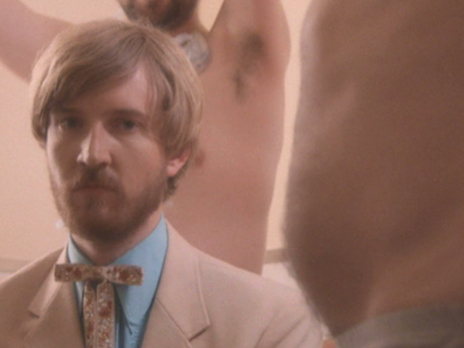AudioCulture
The noisy library of New Zealand music
Te pātaka korihi o ngā puoro o Aotearoa
Lawrence Arabia
aka James Milne, The Reduction Agents
Behind the name is James Milne, who also led The Reduction Agents before setting off on his own and spending years in London trying to break into the UK scene. He self-released his first album before signing to respected London indie label, Bella Union, which led to some great reviews and a number of high profile shows. Milne eventually returned to New Zealand to raise a family, but continues to release songs and tour regularly.
James Milne made his first flailing attempt at being a musician through his Brit-pop-inspired Rockquest band, Dive. The band died once high school ended and Milne focused instead on completing a BA in political studies. He kept his love for music alive through DJing on RDU and writing about music for the university magazine, Canta.
While visiting Auckland and attending the Elam Ball in October 2001, Milne drunkenly introduced himself to Jonathan Bree from Auckland indie-pop band, The Brunettes and, on the spur-of-the-moment, asked if he could write an article about the band. The resulting interview went on for so long that Milne eventually abandoned the idea of transcribing it. But a year later, Bands.co.nz asked him to interview Bree for a second time and Milne used the opportunity to pass on a CD of early demos he had just finished recording under the name The Reduction Agents.
This led to Bree offering him a place in the group. “The EP had a version of ‘You Beautiful Militant’ on it,” says Bree, “which impressed me as a songwriter and that’s why we later produced a Brunettes version of it. James also had better dress sense than me and helped the male members of the band find pants that fit us.”
In 2002, Milne moved to Auckland and became the second guitarist (later, bassist) for The Brunettes, while simultaneously beginning to play some low key shows of his own, either under his name or as James Brunette or The Reduction Agents. It was a show supporting The Checks at Eden’s Bar in 2004 that solidified the idea of having his own band. Milne enlisted more musicians, starting with two fellow Christchurch émigrés: Ben Eldridge from Heavy Jones Trio and Jol Mulholland (from Gasoline Cowboy, who went on to play with his brothers in The Mots).
the Reduction Agents provided a heavy groove to offset the wryness of Milne’s songwriting.
He also enlisted The Brunettes drummer Ryan McPhun and returned the favour by playing drums in McPhun’s band, The Ruby Suns. The talented line-up of The Reduction Agents provided a heavy groove to offset the wryness of Milne’s Kinks-influenced songwriting and, given that all of them were strong singers, they provided a fine bed of melodies for some of the slower tunes. The fanciful notion struck Milne that the lead singer of The Reduction Agents should be a character called “Lawrence Arabia” and he took to wearing Arabian-style robes at shows (even when playing with The Brunettes).
The Brunettes' US tour
Meanwhile, The Brunettes’ career was beginning to pick up pace. Milne was with the group when they made their first trip to London, where they supported The Postal Service and met the owner of that band’s label, Sub Pop. Through this connection, The Brunettes were given a slot supporting The Shins around New Zealand. But Milne’s aspirations couldn’t be assuaged and you could find him after band practice, strumming an unplugged electric guitar, trying to memorise a new tune he’d just come up with by singing softly it to himself – “On the beach I saw you there/ you looked like a stick of gelignite and I wanted to disarm this feeling/ but didn’t know which wire to cut: the red, the green; the green or the red …”
Then The Brunettes’ big break came. The Shins asked them to support them for shows across America during early 2005, which were immediately followed by a second run of shows supporting Rilo Kiley. Milne was enraptured by the surreal experience of taking part in a high profile tour through America and captured his bemusement in a run of wry tour diaries for the NZ Herald. He now sees the tour as a clear turning point:
“I realised that pursuing an international career was very possible. The Shins had great songs, but they weren’t that amazing as a band really. It made it clear that it didn’t require supernatural talent to succeed – it required being over there and having some degree of confidence. Having a network basically. My ambitions leading up to tour were already increasing and I’d already recorded the initial sessions at The Lab for The Reduction Agents album. After The Brunettes did that three-month tour and signed to Sub Pop, the writing was on the wall as to what their future was going to be – touring all the time. I wanted to pursue my own music, so quitting the band was just something that had to be done.”
Going it alone
One contact Milne made during The Shins tour was Okkervil River (who’d been a fellow support for part of the Rilo Kiley leg) and he ended up briefly joining the band as bass player for a tour of Australasia in late 2005. Aside from gaining contacts, Milne had also spent The Brunettes USA tour writing a new set of songs that he felt wouldn’t translate to the live line-up of The Reduction Agents. He came home and began recording a second album’s worth of songs under the name Lawrence Arabia.
This led to the simultaneous release of two albums in 2006.
This led to the simultaneous release of two albums in 2006 – The Dance Reduction Agents and the self-titled Lawrence Arabia album. The former was a raw sounding document of 12 of the best Reduction Agents tunes, capturing both their singalong rock tracks and their more angsty, noisy moments. Upbeat anthem ‘80’s celebration’ was picked up for the Eagle Vs Shark soundtrack, while the catchy riffs of ‘The Pool’ saw it nominated for a Silver Scroll award. The music video for that ‘The Pool’ was an ordeal that saw Milne spending hours one evening at Pt. Erin Pools in Auckland; swimming in the chilly water after the place had closed.
The Reduction Agents completed a national tour as part of the A Low Hum series of shows, but it was always going to be difficult to keep the band going when all the members also had their own projects on the go. Eventually, Milne turned his attention to Lawrence Arabia instead, completing a second national tour, with a pick-up band of musicians. The Lawrence Arabia album delved into quirky places, from the word-association rambling of ‘Thistle Tends to Stingle’ through to the wistful ‘Bloody Shins’, which was about a Reduction Agents gig that imploded (“drummer’s tears, too many beers”) and ended with Milne kicking the floor tom off the stage and bruising his shin. But it was when Milne was in realist mode that his lyrics took on their most caustic brilliance, as in the song ‘Talk About The Good Times’, which takes umbrage with friends who are social climbers: “You’d always condescend to take us back to your boxy-shaped apartment/ you showed us that we’re poorer than you are/ and you’re an undiscovered star/ but now you’re at the bottom of the ocean you’re forgiven and we talk about the good times.”
Moving overseas
Milne realised his best chance of making a career out of music was through gaining a foothold overseas and, at the end of 2006, he relocated to London with his partner, Anna Taylor, a graphic designer, who has produced album art and posters for SJD and The Phoenix Foundation. Here he found a network of expat musicians who had the same goal in mind – he moved in with Liam Finn who was living in Shoreditch. Connan Mockasin often hung out at their place (he lived nearby in Brick Lane) and Milne ended up both filling in as bass player in Connan’s band and co-producing early sessions for his debut album.
Milne gathered together other expat musicians, starting with two ex-members of Betchadupa
For his own group, Milne gathered together other expat musicians, starting with two ex-members of Finn’s old band Betchadupa – Chris Garland and Matt Eccles. They were joined by Dave Fraser (Cassette), Rodney Fisher (Goodshirt), and EJ Barnes (regular touring partner of Liam Finn and daughter of Jimmy Barnes). Lawrence Arabia’s reputation gained a boost through successive tours of the UK and Europe with The Concretes and Okkervil River, as well as more low-key stints playing alongside Liam Finn and The Ruby Suns.
He was also keen to keep a connection with his audience back home and came back for tours whenever he could afford it. On one tour in April 2007, he teamed up with Samuel Flynn Scott from The Phoenix Foundation, who had just released his first solo album. The pair shared a band and played on each other’s tracks. Milne was always keen to collaborate with musicians that he respected and this musical networking would serve him well over the years to come – forging alliances and helping him spread his music to new audiences.
Back in the UK, Milne supported himself by working part-time at Kiwifruits – a shop that sold Marmite, Whittaker’s Chocolate, and other essentials to homesick New Zealanders. He set up a small recording space in a large cupboard under the stairs at the apartment he was sharing with Liam. “I called the studio ‘Wall Of Shit’ because it was a tiny little storage room that people had filled with junk and I just piled that all up against the wall so I could record a drum kit and so on. It wasn’t very conducive to recording and I spent the whole time craving collaboration and the kind of space that you could have in New Zealand, where you have friends with cool rooms.”
Meanwhile, his band was slowly being whittled away – Rodney Fisher lived too far away to keep up with practice, then Matt Eccles left to join successful Belgian band Das Pop and Chris Garland moved to Australia. One upside was that Milne had the opportunity to visit Eccles in Sweden and use the Das Pop studio there, which meant he could do a week’s worth of recording toward his next album. But his progress flagged as soon as he got back to London. “Liam left to tour I’ll Be Lightning [2007] and I moved to Dalston and got a job at Blackwell’s bookstore. In that flat, I didn’t have any space at all and had to set up ad hoc in the lounge. So I spent the whole time feeling discouraged.”
By early 2008, he found himself without a band or a place to live, but both problems were solved in one go – he moved into a mouldy basement apartment with members of fuzz-pop group The Sneaks, who soon joined the Lawrence Arabia line-up. Band practice needed to be quiet in order not to annoy the upstairs tenants, so the band set up with electric drums and a small mixing unit, then each wore headphones to hear what they were playing. The only sound was the voices singing in harmony, the dull tapping of the electric drum pads, and the rattling strum of unamplified guitars.
Around this time, he met up with his former band, The Brunettes, when they supported Broken Social Scene at the Shepherd’s Bush Empire. Yet, Milne had already gone them one better – the night before Lawrence Arabia supported Feist at Royal Albert Hall (two solo acts outdoing their former bands by playing at a venue that was twice as big). Funnily enough, it was during The Brunettes tour that Milne had first met Feist.
“We met in Denver. Ryan and I ended up riding in her bus for two days. She was the middle support for Rilo Kiley and we were the openers, though she was playing solo with just loops ... Those shows supporting her in the UK were a jump up in expectation for my band at the time. In retrospect, I don’t think we were quite ready for it, but you just have to try to take advantage of the opportunity. It was terrifying playing the Royal Albert Hall and I was using one of their amps, which had a step-down transformer and I was getting electric shocks from the microphone. The whole soundcheck, rather than running through our songs, we just tried to solve that problem. Finally they just had to put one of those ridiculous wind socks on the mic, so I played the gig feeling totally stressed out. I didn’t really get to feel comfortable on stage. It would’ve been the most nerve-wracking show of my career, for sure.”
Completing the album was a torturous affair.
Milne had also been making progress on the recording front and returned to New Zealand with a new album, Chant Darling (2009). Completing the album had been a torturous affair; Milne was feeling the pressure to create a breakthrough piece of work. “There was interest around while I was in London. A piece came out in Sunday Times – an article on the front page of the entertainment section that featured me, The Ruby Suns, Connan, and The Brunettes. It described this amazing new wave of New Zealand bands. I’d self-released the first album in the UK, which was something of a folly, but it received good reviews. That had already led to some early discussions with Bella Union, after I was introduced to their A&R guy by Matthew Crawley [a promoter in the NZ indie scene]. So there was definite momentum but I was really struggling to make a good record.”
When Chant Darling did finally arrive, it was a tautly constructed piece of work, filled with sharp lyrics and a buoyant sense of energy. A songwriting challenge on student radio station 95bFM had prompted Milne to compose the bare bones of a song called ‘Auckland CBD’. He decided to keep the title and turn it into a lilting salsa-style number for his album (calling it ‘Auckland CBD Part Two’). Many of his previous music videos were made by his friend Stephen Ballantyne (from the Jensen Downes Picture Company), and this time the young director outdid himself – following the thickly moustached Milne around the finer parts of the city for ‘Auckland CBD Part Two’ and then remaking him as a 1970s political candidate for the uber-catchy number, ‘The Beautiful Young Crew’.
Yet it was a song written with a bit of input from Luke Buda (from Phoenix Foundation) that would receive the biggest acclaim. ‘Apple Pie Bed’ was awarded New Zealand’s highest honour for composition, APRA’s Silver Scroll award.
“The song was almost entirely written before I played it to Luke and he made some melodic suggestions. That’s why Luke was quite embarrassed about the whole thing. How it really came about was that I’d helped him with one tiny line in a song, ‘Crystal Ham’, and he gave me five per cent of the songwriting credit. I felt what he’d done in ‘Apple Pie Bed’ was more than what I’d done on his song, so I gave him five per cent back. Then it got nominated for the Silver Scroll Award and he was like – oh shit! But he was a great prop for the promotional photos so it worked out well. Of course, now he’s convinced that he’ll never win the Silver Scroll award for a song he’s actually written.”
Chant Darling went on to receive the Taite Award and was released in Australia through Mistletone. Elsewhere in the world, it was released the following year through Bella Union and gained an equally strong critical reception - receiving 4/5 in Uncut magazine and 9/10 on the Pop Matters website. When Milne re-gathered the Lawrence Arabia band, he was again joined by Martin Keane and Daniel Ward (from The Sneaks), along with Hayden Eastmond-Mein (formerly of The Brunettes) and Tom Watson (formerly of Cassette). Watson’s trumpet lines became a key part of the Lawrence Arabia sound over the years to come, adding another element to the band’s formidable live arsenal.
With a fine album AND a great live band, Lawrence Arabia was set up for his best chance at overseas success.
It seemed clear that with such a fine album under their belt and such a great live band, Lawrence Arabia was set up for his best chance at overseas success. He spent much of 2010 on a stop-start tour across the world. This effort opened up new opportunities for the group, including playing a “Tiny Desk Concert” for NPR.org and supporting Beach House for a sold-out run of shows through the UK and Europe. Some of the biggest shows on the tour actually came through New Zealand connections – Lawrence Arabia supported Flight of the Conchords for two nights at Wembley Arena and joined Crowded House for a six-week tour of North America.
The Flight of the Conchords shows were a tricky proposition for Milne: “We were playing first, with Arj Barker doing stand-up comedy after us. It wasn’t totally full when we played but it was still a sold-out venue with a capacity of 12,000. Luckily when you get beyond an audience of 2000, you can’t really see anything, though I could sense all those people out there. The Crowded House tour was great – beautiful venues, a lot of wineries on the West Coast, super-bourgeois places. It was very grown-up.”
The life of continual touring was a mixed blessing for Milne: “It was intoxicating to live that life, but it was personally very stressful. I definitely came out of it re-examining my success-at-all-costs approach. I’d always had in my mind that I’d push it to the limit, so I really pursued it without really considering the consequences. But it was an incredibly expensive endeavour and I ended up having to deal with the financial fallout of that year for a long time afterward.”
Around this time, Milne changed tack slightly – expanding the type of musical work he got involved with. He’d always been interested in soundtrack work and previously composed music for two plays – Arohatearoa and Apollo 13 – which both involved his close friend, Kip Chapman. Milne had also created music for a couple of unreleased short films. Now he joined with James Dansey (singer from The Sneaks) to create music for the TV show Hounds. He also collaborated with screenwriter Duncan Sarkies and illustrator Stephen Templer on their project, The Mysterious Secrets of Uncle Bertie’s Botanarium (particularly on the short film that introduced the work).
His on-going willingness to work with other musicians also threw up new opportunities. During his busy year of touring, he still found time to start a side project called BARB with Connan Mockasin, Liam Finn, and EJ Barnes, which released a self-titled album at the end of 2010. The following year he provided lyrics and melodies for a set of instrumental tracks written by respected Wellington musician Mike Fabulous. This led to the album Unlimited Buffet (2011), released under the name Fabulous/Arabia.
Lawrence Arabia’s next album, The Sparrow (2012), drew from songs Milne had written while undertaking the extensive touring of 2010. It reflected his frazzled mental state at the time. He recorded some initial tracks with Connan Moccasin on bass and Elroy Finn on drums at the studio of expat producer Joe Gubay, who had a collection of vintage equipment set up in Surrey (expat sound engineer Nick Abbott was also involved). Milne decided he wanted to record musicians playing with feeling rather than relying so heavily on tinkering with endlessly overlaid digitally recorded tracks:
“My whole principle with recording it was that we wouldn’t rehearse anything and I would trust that they were interesting players that would come up with a great approach of their own to the songs. It was just a reaction to the interminable process of recording the previous record.”
Milne then layered string parts and horn lines over the top of these basic tracks – some of the latter were provided by Toby Laing from Fat Freddy’s Drop, most notably on instrumental track ‘Dessau Rag’. The result was an album with a playful musicality to it, though Milne’s gift for satire still sparked, especially on ‘The Listening Times’ which described a party that has gone on too long: “They need to go to bed, there’s conversations in their heads that can’t get out.”
‘The Sparrow’ was launched with live filming of a concert of the entire album.
The Sparrow was launched with live filming of a concert of the entire album at Whangateau hall near Matakana (leading to the video for ‘Travelling Shoes’). The reception to the album was very positive with Mojo giving it 4/5 and a full page interview in Australian Rolling Stone magazine, while at home it led to Lawrence Arabia being named Best Male Solo Artist at the 2013 NZ Music Awards.
Milne wanted to avoid the onerous financial outlay of his previous overseas tours. He cast around for musicians that were overseas to join him as a pick-up band and toured the UK and Europe with Ryan McPhun on drums and Andrew Keoghan on bass/violin, including a prime slot at the End of the Road festival. Yet Milne did feel the pinch of keeping costs down. “Everything was slightly downsized from the previous tour – we did a session on BBC6, but the previous time we’d done one for BBC2 and BBC4. It felt like releasing the album in the middle of the year wasn’t the best timing, there was a lot coming out so it was easy for an album to get lost.”
After the tour, he moved to New York along with Keoghan, and Daniel Ward again joined on drums although Elroy and Liam Finn also did some early shows (before leaving to focus on recording their dad’s album). This meant he had a local base for a few short tours of the USA, though he eventually moved back to New Zealand to have a child. This caused a marked change in his life but, if anything, provided new focus to keep his career moving forward. He toured regularly, including a short European tour in mid-2014 (playing as a duo with Ryan McPhun).
His next album, Absolute Truth (2016) was recorded at the studio of his former bandmate Mike Fabulous in Lower Hutt. The interesting collaborations didn’t end there – he filmed a music video for a second single ‘Another Century’ with award-winning director Florian Habicht in Bangkok and the album’s cover was co-creation between geographer Chris McDowall and Milne’s partner Anna Taylor (it showed his face as a contour map).
While some of the songs showed Milne’s playful lyrical wordplay, without too much deeper meaning (‘A Lake’ spun off ideas from a single photograph), there were other tracks where he thoughtfully examined his new station in life – ‘Mask of Maturity’ and ‘What Became Of That Angry Young Man?’ The album was released by Flying Nun and Milne promoted internationally with a short tour of Europe (with baby and partner in tow).
His approach for his next album was his response to a tantalising proposition – he had arranged for orchestration to be written for his song ‘Just Sleep (Your Shame Will Keep)’ to be done by the legendary Van Dyke Parks. The only problem was that Milne couldn’t afford to pay for his time. This led to the idea of setting up a Kickstarter where fans could pre-order the album. Rather than delivering it all-at-once, Milne decided to release a track per month - thereby spurring on his songwriting process at the same time.
Remarkably Milne not only completed this process of writing and recording 12 tracks in 12 months, he also arranged a number of guest spots throughout the album, which included – Tiny Ruins sang on ‘Everything’s Minimal’ while vocals by Heather Mansfield (The Brunettes) sat alongside drums by Liam Finn on ‘A Little Hate’ (he also had engineering assistance from James Dansey at their shared studio).
Not only was the album, Singles Club (2019), a critical success, but the songs went on to become some of his most popular tracks online – ‘Everybody Wants Something’ and ‘One Unique Creature’ fall only behind ‘Apple Pie Bed’ in terms of streaming numbers. The video for ‘Everybody Wants Something’ featured Jemaine Clement from Flight of the Conchords and it wasn’t the first time they’d worked together – Milne had provided music for the Clement’s podcast with Duncan Sarkies The Mysterious Secrets of Uncle Bertie's Botanarium (the song ‘Just Sleep’ had been originally written for it).
This was just another example of Milne’s amazing adaptability in his struggle to survive as a musician in the local music industry, which has also seen him putting his skills towards such varied pursuits as: composing and undertaking a live performance of music for a silent film; writing for live plays and short films; and singing in a choir for a Neil Finn album. It is impossible to say where Milne’s music will take him next, but no doubt his talents will see his music taking him in more new and exciting directions in the future.
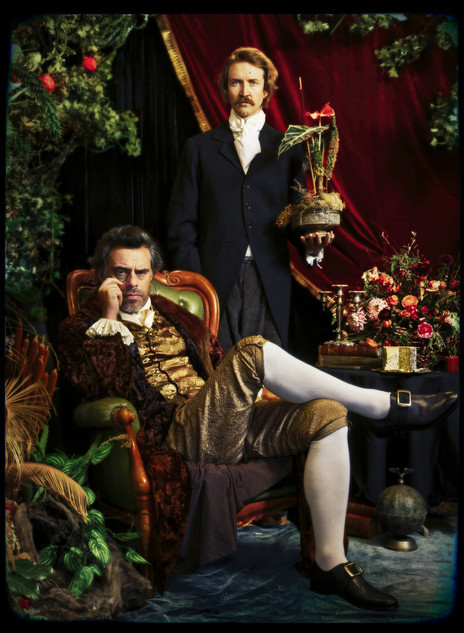
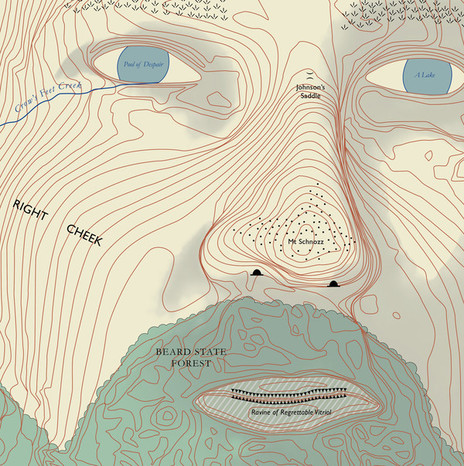
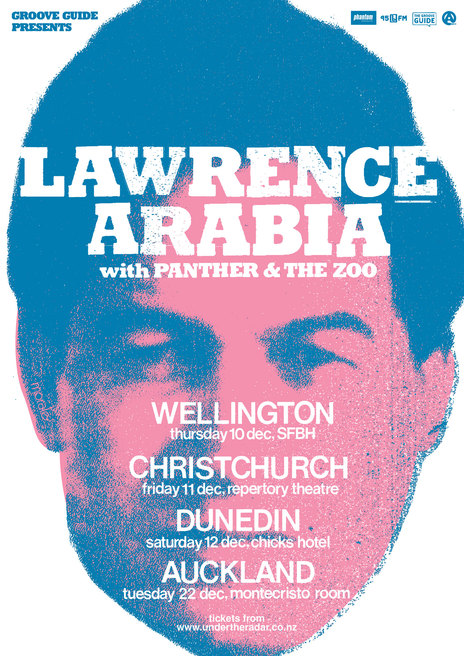
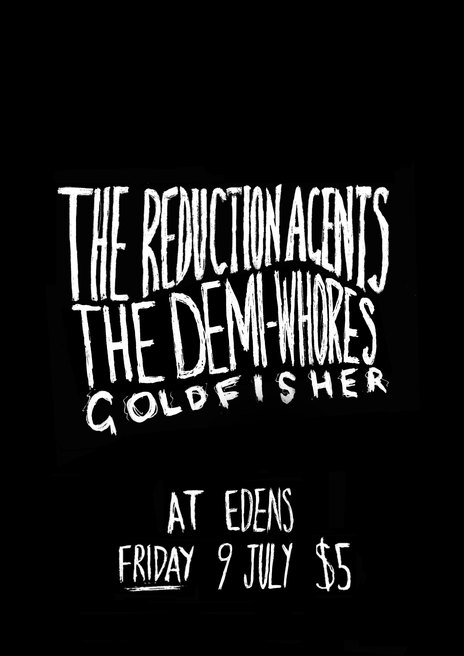
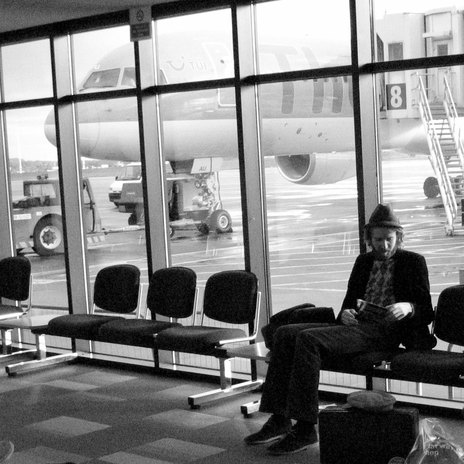
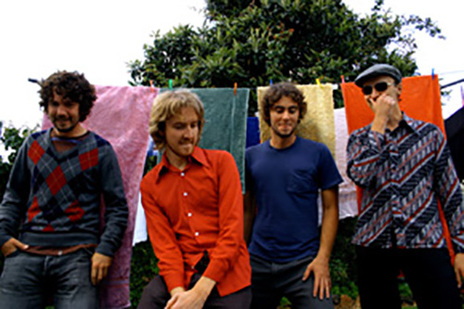
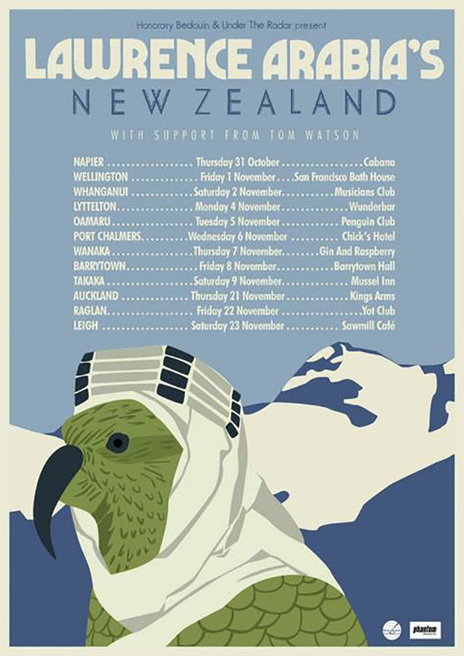
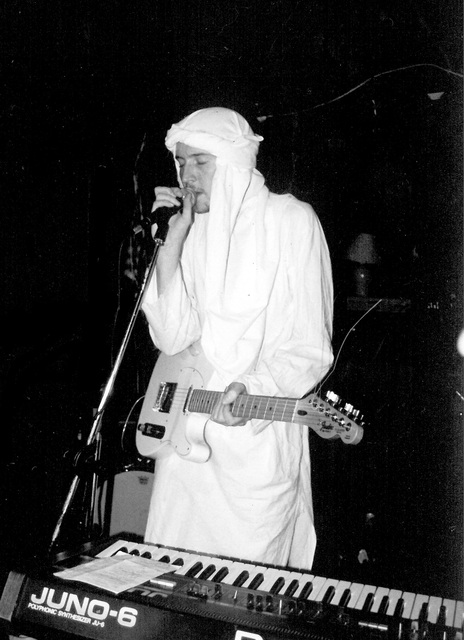
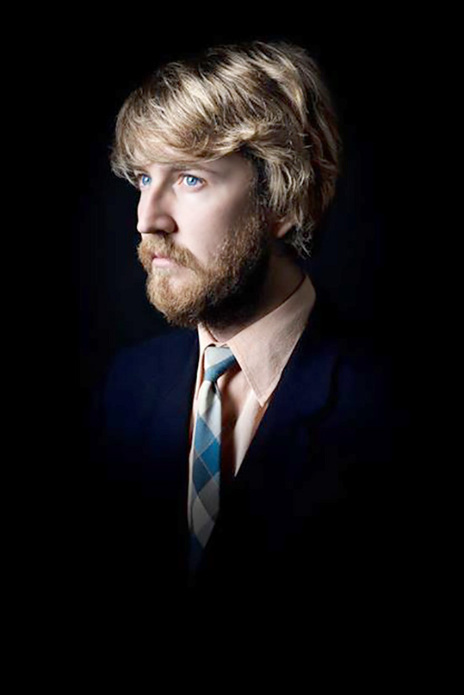
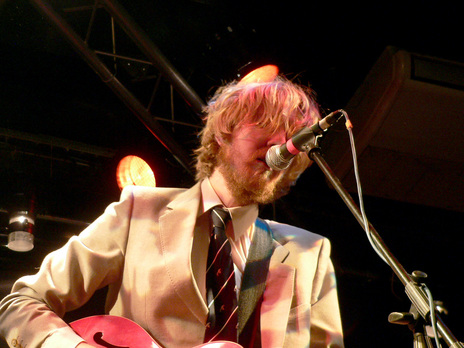
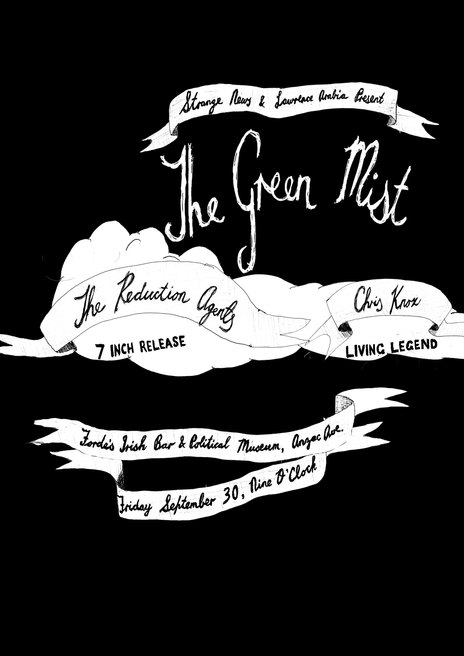
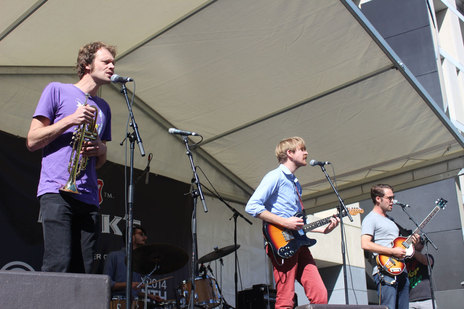
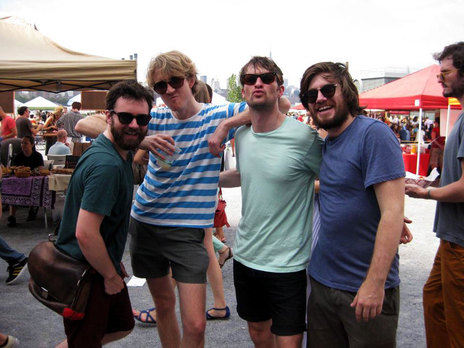
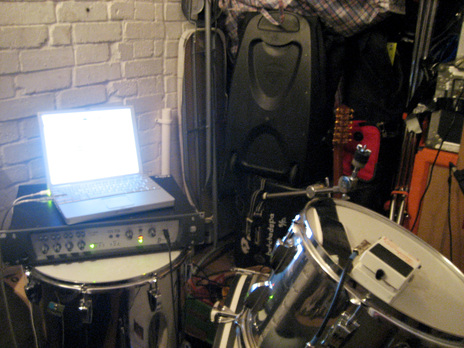
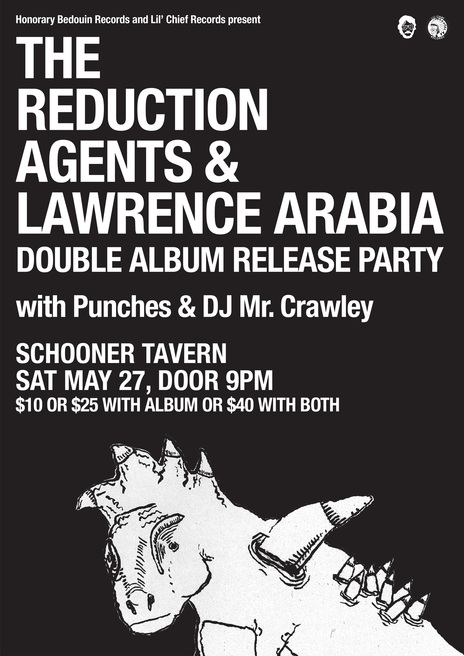
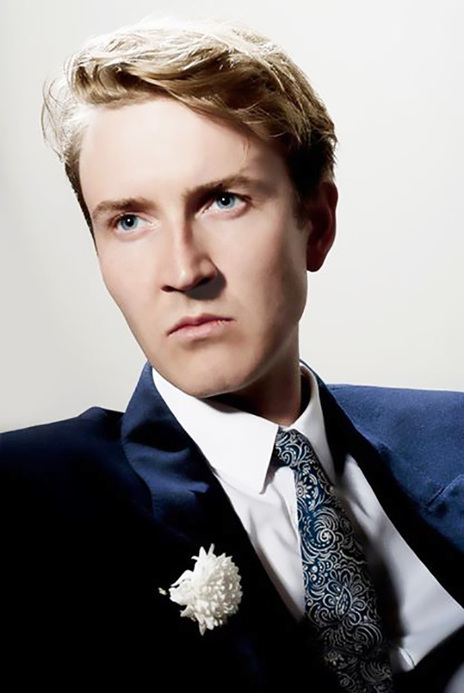
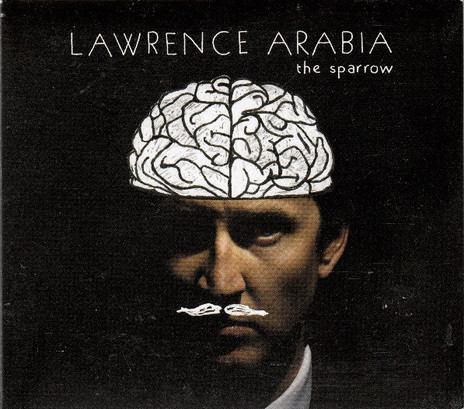
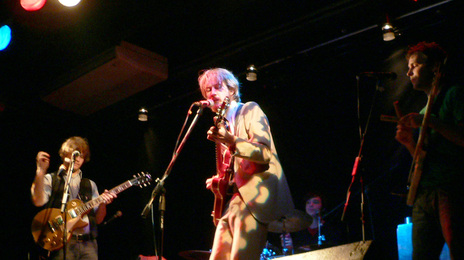
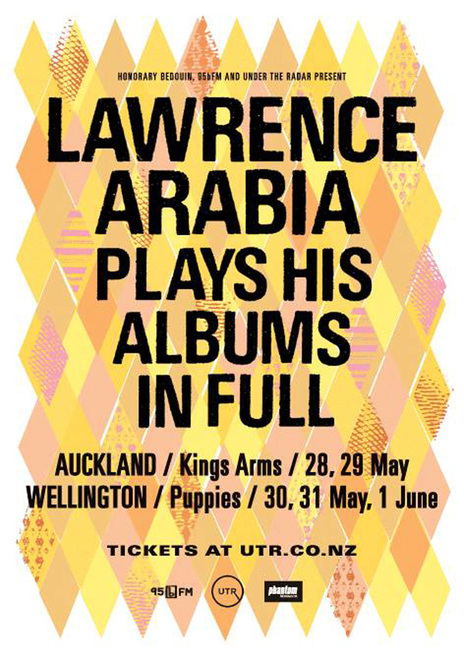
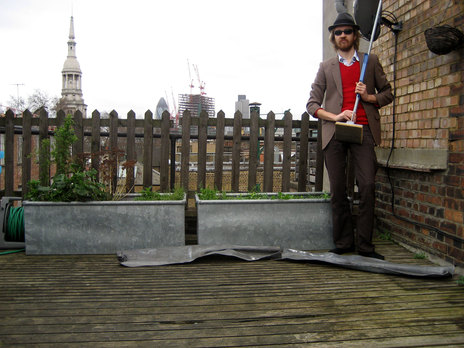
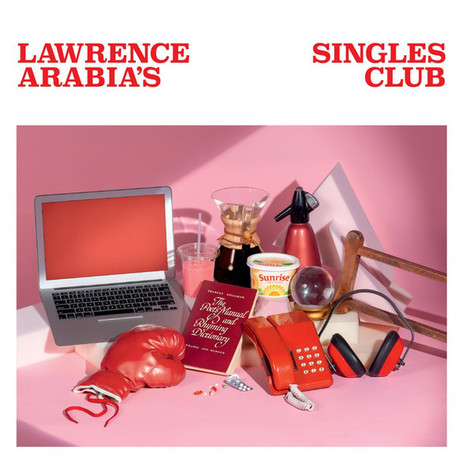
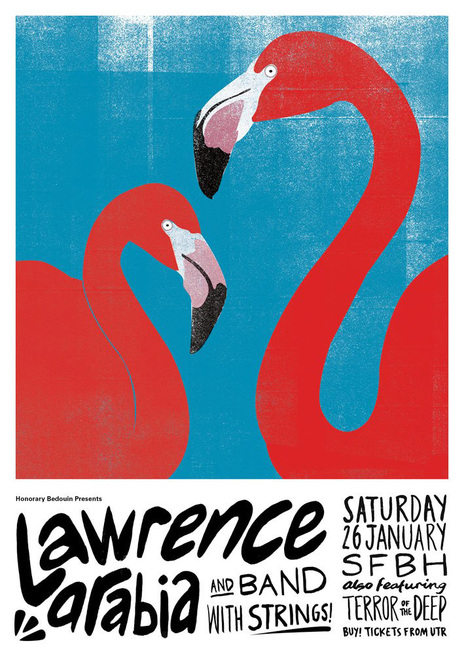
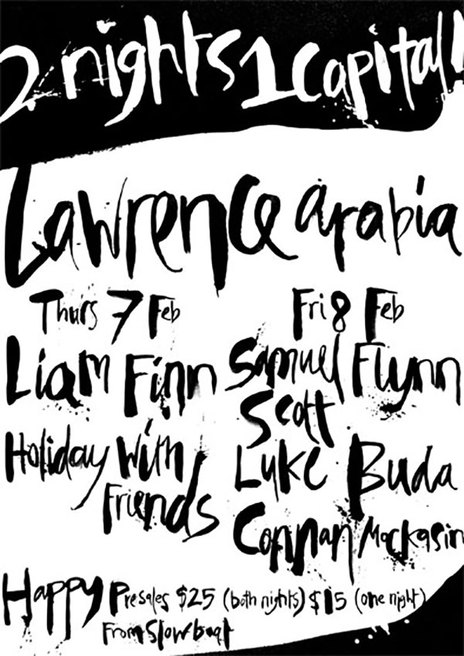
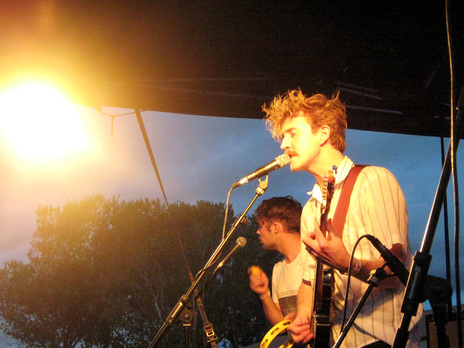
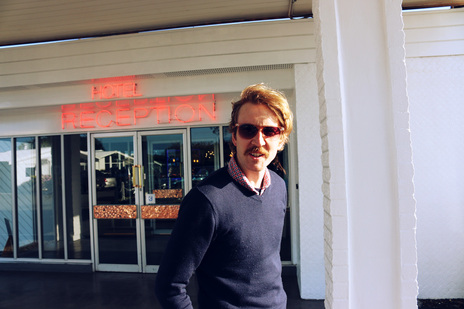
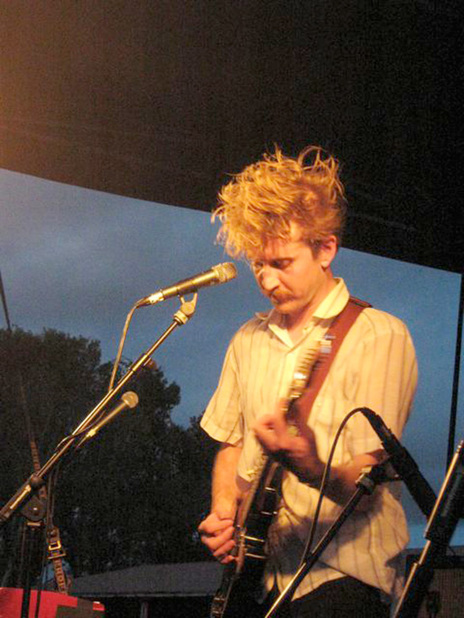
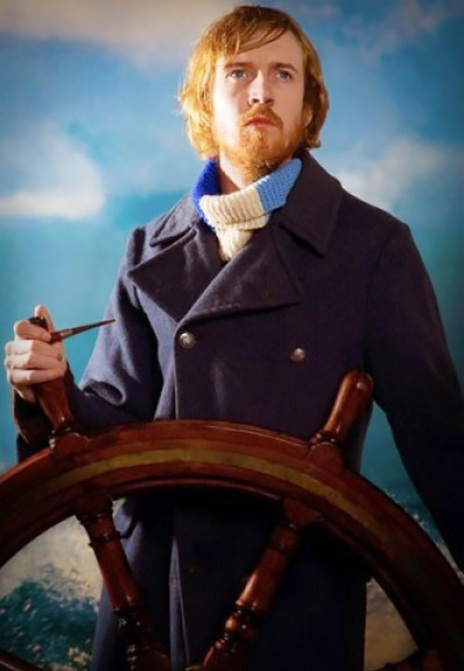
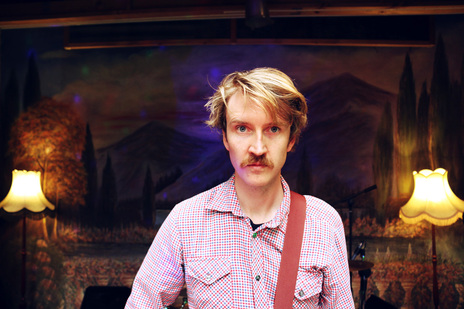
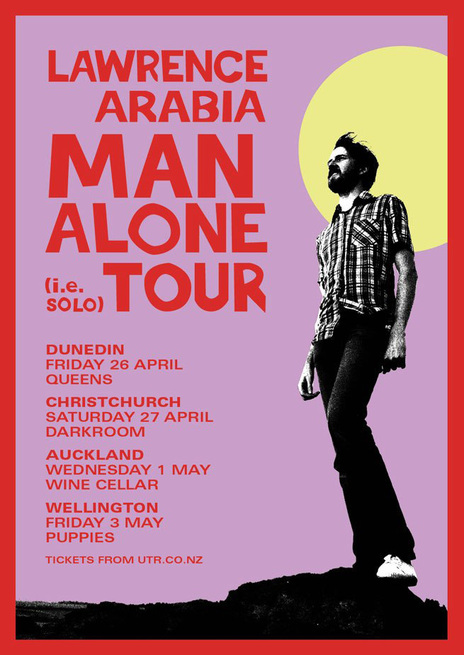
Mistletone Records
Bella Union
Honorary Bedouin
Visit our sister site
NZ On ScreenMade with funding from
NZ On Air